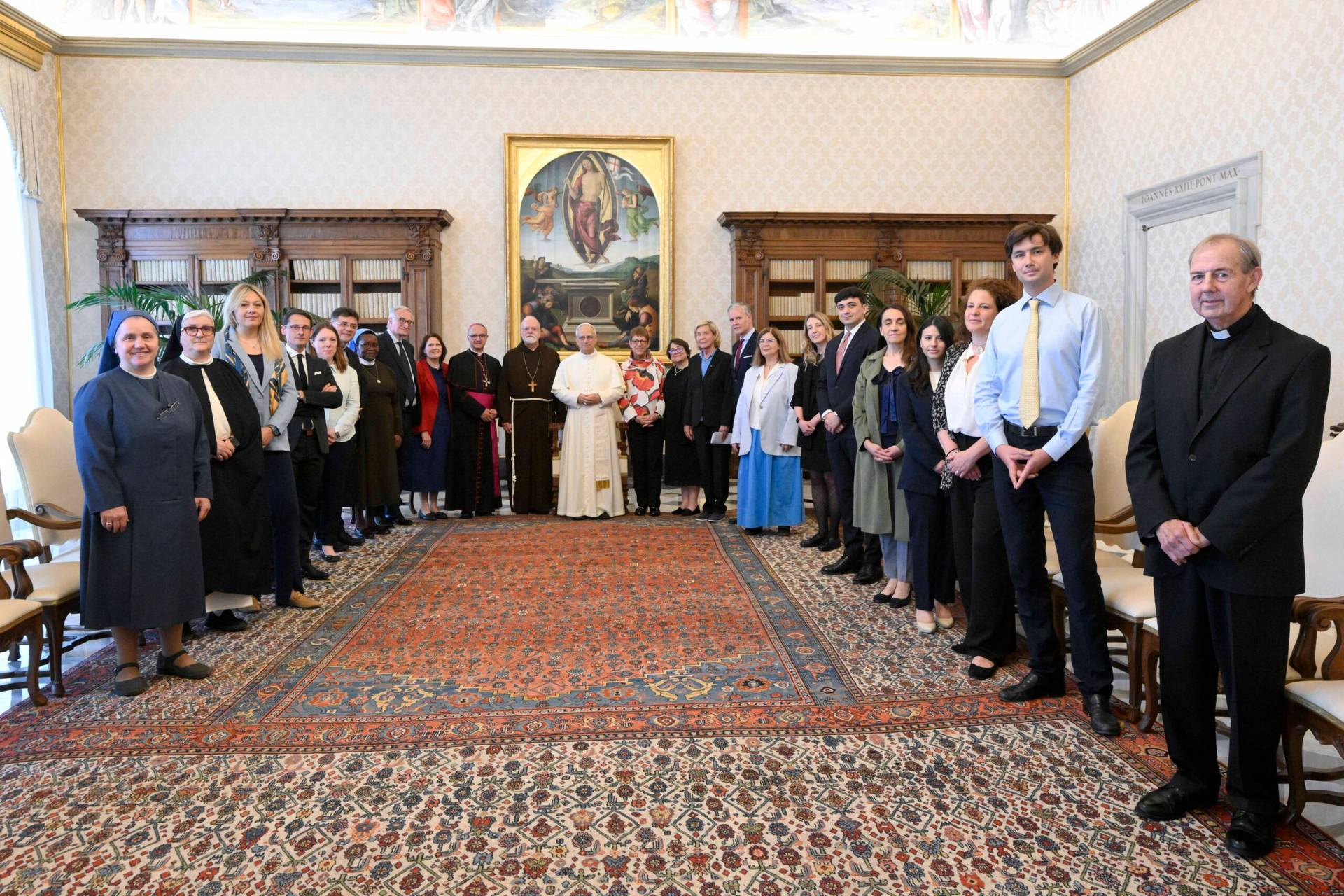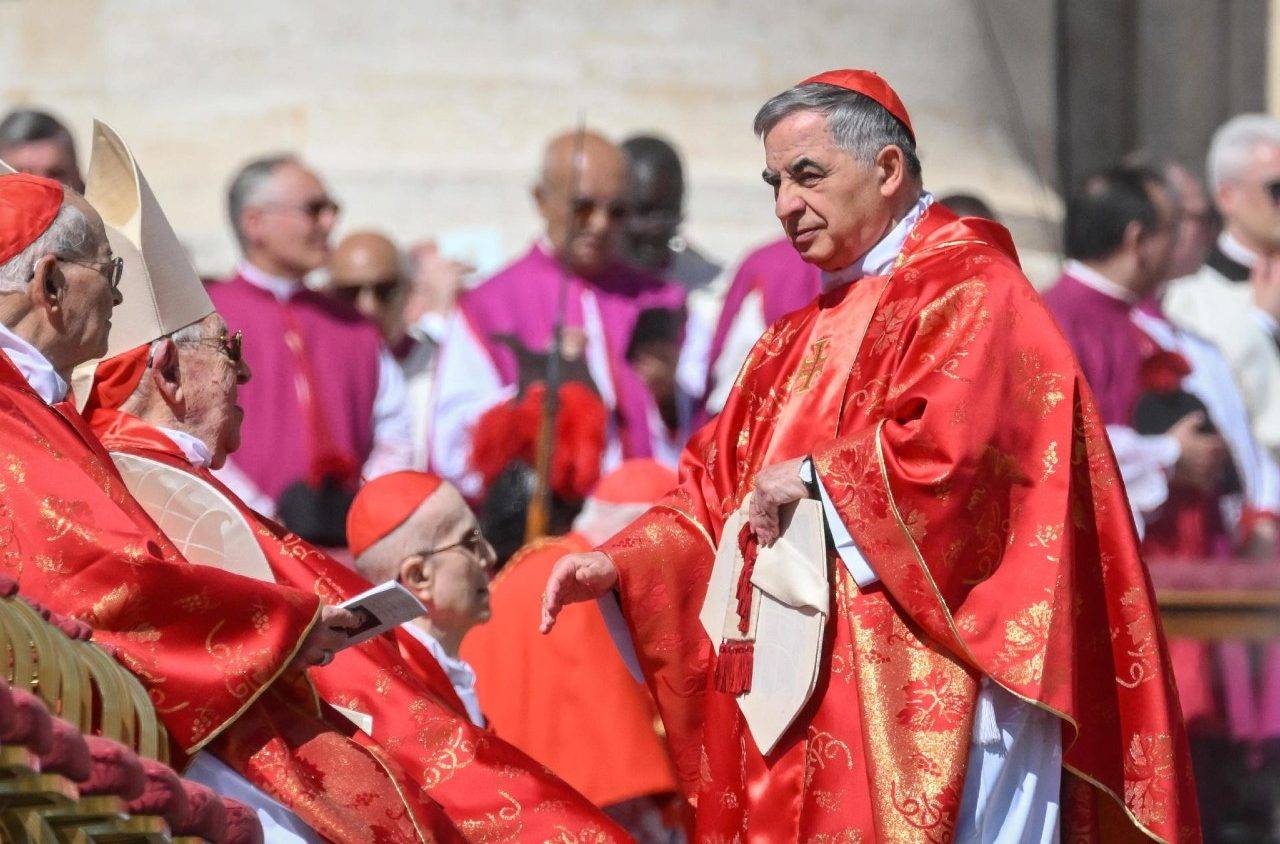Among several controversial aspects of Monday’s transfer of the U.S. embassy in Israel to Jerusalem was the presence at the dedication ceremony of two high-profile American Evangelical pastors: John Hagee, founder of Christians United for Israel, and Robert Jeffress, a Dallas-based Southern Baptist and major Trump supporter.
Both men have a checkered background, Hagee for comments in the 1990s on Hitler and the Jews and Jeffress for once calling Islam and Mormonism heresies “from the pit of hell.” (For the record, Jeffress also once suggested the Catholic Church represents “the genius of Satan,” and Hagee over the years has referred ambiguously to Catholicism as the “Great Whore of Babylon.”)
Regardless of what one makes of either minister, their presence at Monday’s dedication reflects the ardent support of the Evangelical community in America for both Israel and Trump, with 80 percent of white Evangelicals having backed the president in 2016.
Notably, however, there were no Catholic dignitaries on Monday’s line-up – no American Catholic leaders, no members of the local Christian community in the Holy Land, and certainly not Archbishop Leopoldo Girelli, the pope’s ambassador to Israel, whose embassy remains firmly ensconced in Tel Aviv. No Catholic gave a blessing, and no prominent Catholic figure was heard endorsing the move.
However much Evangelicals and Catholics in America may have grown close in recent decades, the Israeli/Palestinian conflict remains one area in which Catholic officialdom simply isn’t on board.
St. John Paul II, for instance, was widely perceived as a friend of Judaism and of Israel. Yet it irritated Israelis that he also met PLO leader Yasser Arafat 12 times, treating him as a serious statesman rather than the gun-toting thug most Israelis perceived him to be.
So keen was John Paul’s affection, actually, that when the Palestinian leader once gave him a set of pearl-white Stations of the Cross, John Paul had them installed in the chapel of the Vatican hall where the Synod of Bishops meets.
That stance has continued under Francis, who was among the first world leaders to speak out against the embassy move when Trump announced it last December.
“I wish to make a heartfelt appeal to ensure that everyone is committed to respecting the status quo of the city, in accordance with the relevant resolutions of the United Nations,” the pope said, speaking during his weekly General Audience at the Vatican.
“I pray … that wisdom and prudence prevail, to avoid adding new elements of tension in a world already shaken and scarred by many cruel conflicts,” Francis said, in language that seems fairly prescient now in light of violence on the Gaza Strip protesting the embassy move which, so far, has left 58 people dead and some 2,700 wounded.
Last summer, after a crisis surrounding the Temple Mount in Jerusalem, a Vatican diplomat speaking before the United Nations reiterated the Holy See’s long-standing position that Jerusalem is in a unique diplomatic category.
Monsignor Simon Kassas, Chargé d’Affaires of the Vatican’s mission to the United Nations, said the Vatican believes Jerusalem needs an “internationally guaranteed” special status, in order to ensure freedom of religion for the city’s inhabitants, “as well as secure, free and unhindered access to the Holy Places by the faithful of all religions and nationalities.”
There are many factors accounting for the Vatican’s outlook, beginning with the fact that its points of reference are 1947 and 1948 UN resolutions calling for a special international status for Jerusalem. Vatican diplomats at the time played a key role in having that language inserted, counting on the support of the “Catholic countries” of Europe.
Jerusalem was envisioned as a corpus separatum, a place apart, though that plan was never implemented on the ground. The Vatican has softened its stance over the years, looking for vaguer “international guarantees,” but still sees the UN resolutions as the de jure starting point.
In terms of cultural background, it’s also true that the default setting for most Vatican diplomats isn’t the thought world of the U.S. but the EU.
Future Vatican envoys in the Accademia, Rome’s prestigious training ground for papal diplomats, generally attended the same schools, read the same books, and moved in the same social circles as their secular European counterparts, and they absorb much of the same worldview. Mainstream European sentiment isn’t as pro-Israel as in America, where that stance often seems axiomatic.
Moreover, the Vatican sees itself as the world’s smallest state and thus feels a natural affinity for other small states, especially when the perception is that a major world power – in this case, the United States through its support of Israel – has that small state at a disadvantage.
The fundamental reason for the fact that Evangelicals and Catholic leaders often think differently, however, is that Catholics have skin in the game in the form of a meaningful Christian population.
While statistics on the Christian presence are a matter of debate, in general most estimates say there are about 300,000 Christians in Israel, divided among Arab Palestinians, foreign ex-patriates and Christians integrated into the country’s Hebrew-speaking population. There are roughly 50,000 Christians in the Palestinian territories of the West Bank and Gaza, almost all of them Arabs.
Over the years, the Catholic bishops of the Middle East have typically been strongly pro-Palestinian. Most have not gone as far as Greek Melkite Archbishop Hilarion Capucci, who was arrested in 1974 and later convicted by an Israeli court for smuggling guns to the PLO in the trunk of his Mercedes sedan, but many sympathized with Capucci’s aims.
In part, Palestinian Christians are conscious of their status as a minority within an overwhelmingly Muslim society, and thus sometimes feel the need to prove their Arab loyalties by being especially vocal in their criticism of Israel and their support for the Palestinian cause. Though most of the dead and injured on the Gaza Strip protesting the embassy move have not yet been identified, it would not be at all be surprising if there were a handful of Palestinian Christians among them.
On Tuesday, Italian Archbishop Pierbattista Pizzaballa, a Franciscan who serves as the Apostolic Administrator of the Latin Patriarchate in Jerusalem, announced a prayer vigil for this coming Saturday.
“It’s a paradoxical situation because, on the one hand, there’s a great festival with the transfer of the US embassy, and on the other, there’s tragedy and massacre. It’s a photograph that says it all about the paradoxical and dramatic situation of enormous separation and distance in this terrible and interminable conflict,” Pizzaballa said, speaking to Italian Catholic TV.
“For some time, there’s been no dialogue between Israelis and Palestinians. The absence of dialogue, the profound mistrust that’s been created between the two parties, the hatred and resentment, have resulted in the latest episode of violence that I fear isn’t over,” he said.
For all those reasons, at least one thing seems fairly certain on the unstable landscape of today’s Middle East: The Vatican won’t be joining the U.S. on “embassy row” in Jerusalem anytime soon.















